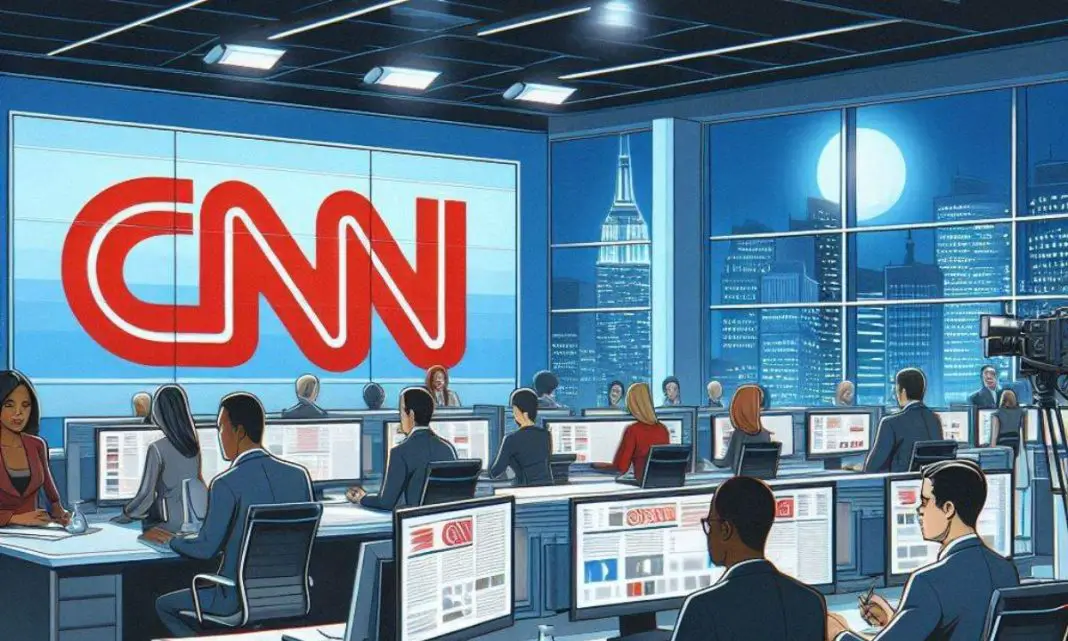Author and journalist Batya Ungar-Sargon appearing on CNN exposed a troubling mindset among media elites: a willingness to trust China, America’s greatest economic rival, over President Donald Trump. This clash reveals a deeper divide—one that pits the interests of American workers and manufacturers against a globalist elite skeptical of populist economics. Trump’s aggressive trade policies, aimed at reviving American markets and protecting domestic industries, deserve the support of every patriot who values the nation’s economic sovereignty.
The debate erupted when CNN panelists questioned Trump’s claims of ongoing trade negotiations with China, which Beijing has publicly denied. While the panel leaned toward believing China’s narrative, Ungar-Sargon called their stance “insane” and an embarrassment to the nation. Her words struck a chord for those who see Trump’s trade agenda as a defense of American interests against a foreign power that has long exploited U.S. markets.
“We don’t know if China’s lying or not, but I’m just saying that there’s no doubt that there’s a different story coming out of China,” former NewsNation host Dan Abrams noted, attempting to navigate the tension. But Ungar-Sargon wasn’t having it. “Why are you guys on China’s side in this? It’s insane!” she fired back, voicing the frustration of millions who see China’s economic dominance as a direct threat to American jobs and manufacturing.
The skepticism toward Trump reached a peak when Sirius XM host John Fugelsang challenged the president’s credibility. “How can you not trust China but trust Donald Trump?” he asked, implying that Trump’s word carries less weight than Beijing’s. This question encapsulates the elite disdain for Trump’s populist approach, which prioritizes American workers over international alliances and global trade deals that have hollowed out the heartland.
Ungar-Sargon’s response was a powerful rebuke. “Are you kidding me? I think that’s very sad that you trust our greatest adversary over the President of the United States who was elected by over 80 million of your fellow Americans,” she said. “That’s pathetic.” Her words resonate with the millions who voted for Trump, seeing him as a champion of economic policies that put America first, from revitalizing factories to curbing reliance on foreign goods.
Fugelsang countered by pointing to Trump’s electoral losses in the popular vote in 2016 and 2020, claiming, “Excuse me, the majority of people who showed up to vote against him in 2016, 2020, and 2024. There’s no mandate to speak of.” Yet this ignores a critical fact: in 2024, Trump became the first Republican to win the popular vote since 2004, defeating former Vice President Kamala Harris. His approval ratings, higher now than during his first term, signal growing public confidence in his vision for America’s economic revival.
Fugelsang went further, arguing that Trump’s untrustworthiness deters global partners. “No countries will trust Trump or want to make deals with the U.S.,” he claimed, citing Trump’s withdrawal from agreements like the Iran nuclear deal and the Paris Accord. But Ungar-Sargon swiftly debunked this, noting that over 100 countries are actively negotiating with the Trump administration on reciprocal tariffs. This fact alone demonstrates the global recognition of America’s economic leverage under Trump’s leadership.
“Are you not embarrassed to give preference to China over the United States?” Ungar-Sargon pressed, exposing the panel’s apparent bias. Her question cuts to the heart of the populist economic movement: why should America’s media and elites side with a foreign adversary over a president fighting to protect domestic industries? Trump’s tariffs, while controversial, aim to level the playing field for American manufacturers battered by decades of unfair trade practices.
Fugelsang doubled down, questioning why anyone should believe Trump. “Why should I believe that Donald Trump is telling the truth about anything at this point? How can our allies believe it at this point?” he asked, even suggesting that Trump’s policies have deterred tourists, driving them to places like North Korea. This hyperbolic claim dismisses the real economic stakes: Trump’s trade war is about securing America’s future, not appeasing global opinion.
Trump’s tariff strategy has been a cornerstone of his economic nationalism. On Tuesday, he announced plans to “substantially” ease tariffs on China, though not eliminate them entirely, signaling a pragmatic approach to negotiations. This follows a tumultuous trade war sparked by his April 2 tariff announcement, which prompted China to impose steep retaliatory tariffs. By April 9, Trump escalated tariffs on China from 104% to 125%, pausing tariffs on other nations to focus negotiations—a move that shows his commitment to strategic deal-making.
The next day, Trump raised the stakes further, announcing a minimum tariff rate of 145% on Chinese goods, according to The New York Times. As of April 15, China faces tariffs as high as 245% due to its retaliatory actions, per the White House. These bold moves have pressured China to the negotiating table, proving that Trump’s hardline stance is yielding results for American markets.
U.S. Treasury Secretary Scott Bessent, speaking Tuesday, expressed optimism about de-escalating the tariff war, according to the Associated Press. This suggests that Trump’s strategy—combining aggressive tariffs with openness to negotiation—could stabilize trade relations while preserving America’s economic edge. For American manufacturers, this is a lifeline, offering protection from cheap Chinese imports that have decimated industries like steel and textiles.
The CNN debate reveals a stark contrast: Trump’s populist economics, rooted in American pride and self-reliance, versus a media elite seemingly more comfortable trusting China than their own president. For the workers in Ohio factories, Michigan auto plants, and Pennsylvania steel mills, Trump’s policies represent a fighting chance to reclaim economic security. His tariffs are not just about trade; they’re about restoring dignity to communities gutted by globalization.
Is it disgraceful for Americans and the West to trust China more than the Donald Trump?


Left wing morons would like to destroy this country.